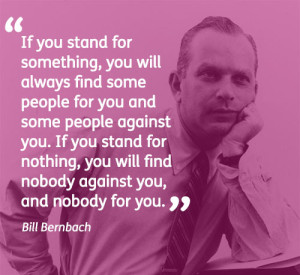 As Social Media Week kicked off on Monday in London, amid all the online noise the This Is Not An Insight tumblr stood out like a shining beacon of common sense.
As Social Media Week kicked off on Monday in London, amid all the online noise the This Is Not An Insight tumblr stood out like a shining beacon of common sense.
While keen tweeters dispensed ‘aphorisms’ left, right and centre, This Is Not An Insight cut them down to size mercilessly, neatly highlighting why live-tweeting from an event is nowhere near as useful and necessary as we all thought.
Utterly moronic
Over the past few years, providing a steady stream of tweets from an event you’re attending has become de rigueur. We’ve all done it – you rock up to a venue, cue up the provided Wifi password and hashtag, and then listen carefully for words of wisdom to broadcast to your Twitter stream.
Unfortunately, unless you’re actually good and practised at this, what you tweet can very easily sound utterly moronic.
Now amplify the nonsensical noise by about 3000 – as has happened at Social Media Week – and all you get is a steady stream of ‘blah-blah-blah’, making it nigh impossible to pick out anything of any note or consequence.
You can, of course, mute an event as Adam Tinworth has done, but that doesn’t really get to the nub of the problem.
To my post’s original question, I would say ‘yes’, there’s always merit in live-tweeting an event, if you can guarantee you can actually do it well and it’s not so huge that what you say (whether as an individual or a brand) doesn’t get drowned out.
There are, of course, certain rules to ensure that what you tweet isn’t dismissed as needless crap – rules I shall try to list now (additional suggestions welcome).
Rule 1: Stop before you tweet
Many people are in such a hurry to broadcast something a speaker has just said that they don’t even think about what it means, and if it’s actually even insightful.
Write your tweet and then look at it carefully before you hit post to see if it makes any sense to your colleague in the office 2 miles away. Keep the phrase ‘no shit, Sherlock’ at the forefront of your mind.
Rule 2: Attribution
If a speaker says something you think is worthy of broadcast, quote them and use their name. In isolation a random sentence makes no sense if you don’t know what the event is or who’s speaking.
Better still – use their Twitter handle, so if they really are talking in gold nuggets, others can follow them.
Rule 3: Provide context
This is a follow-up to rule 2 – adding short commentary to a quote makes it far more valuable and more likely to be RTd, than just tweeting what has already been said.
Rule 4: Remember that Twitter is a conversation
Most people have forgotten what Twitter’s tagline is (Join the conversation), but never is it more apt than when it comes to live-tweeting.
To put that into context, the tagline is not ‘Talk to yourself’. Try to tweet things that might encourage people to interact with you or want to share.
Rule 5: Statistics work better than quotes
What sounds good in the moment – as has been pointed out earlier – doesn’t usually make for a good tweet. However, numbers/facts are normally more concrete and much more shareable.
Use your common sense, though: Someone tweeted this on Monday: ‘33% of brands have created a content publishing hub, to deliver consumers rich content’. To which the rejoinder has to be – ‘Is that any good or not?’
Rule 6: If in doubt, don’t bother
What this entire post is trying to say is that, usually, you’re better off using your tablet/smartphone to take valuable notes that you can share with your team in the office later, rather than tweeting banalities.
What have I missed? Let me know, please. This might even become a dispensable guide…




I love this no article – no beating around the bush and no bullshit. Someone finally shining the light on the reality of the useless banality of the twitter feed to hype up talks and discussions at conferences with no insight or reflection.
Thanks, Lucy 🙂
I don’t think you should police what people can and can’t say, unless it’s utterly offensive, in which case the community will moderate it.
I do, however, acknowledge that Social Media week should be full of people who know better. But Twitter is the ultimate democratic tool. There are people like Adam Tinworth and the cartoonists he works with who do a fantastic job livetweeting, but Social Media Week didn’t invest in professional live tweeters – and that doesn’t mean we should silence those that don’t do it so well – we all have to learn somewhere.
Use your mute function and get on with something more important than trying to police what other people say.
That said, your pointers above are great for anyone who is just setting out live tweeting (I wish someone had given them to me the first time I ever tried live tweeting) and I hope some of the agencies that sent their staff in with a brief to tweet their little socks off use it next time 🙂
Claire – I’m glad my few pointers made sense. I don’t claim to be an expert by any stretch.
And I’d never suggest policing what people tweet – I just wish people would stop and find out if there are any tips/guidelines/instructions before they start.
It’s like when you get a new phone – you know how it functions basically, but to get the best out of it, it helps to read the manual, talk to others or find online blogs that provide tips. If yout don’t you’ll muddle along without ever really achieving its full potential.
As for official live-tweeters, I think they should be standard, tbh. They generally provide a much-needed clarity to what’s going on.
Above all, though, long live Social Media Week! 🙂
Good tips. Thankfully, in a sense, I was away for SMW, but I completely agree with your points about live tweeting. I’ve been guilty of it before, something doing it out of boredom. In either case, it’s (usually) a waste of time.
Thanks, Phil. There was a lot of good stuff at SMW, from what I could tell. Unfortunately, the talking point became the ‘This Is Not An Insight’ Tumblr.